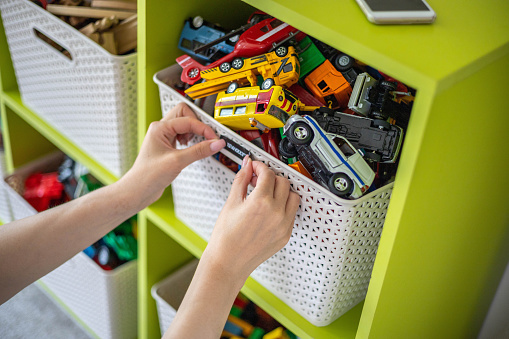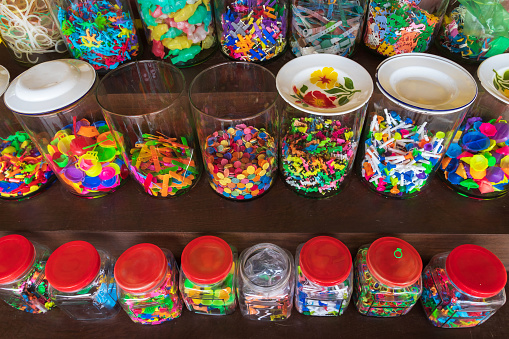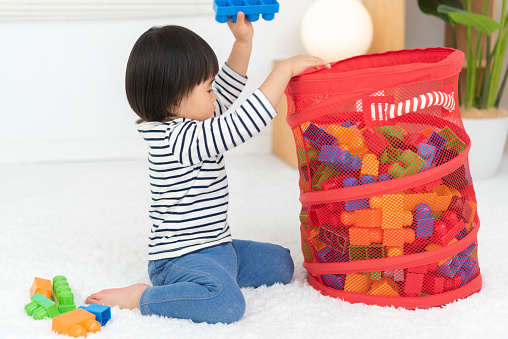It probably happens to you countless times. You walk into your kid’s room to tell them dinner is ready and you’re met with the intense, tear-jerking pain of stepping on a tiny Lego.
You’re able to hold in your anger until you see the state that the room is in. Toys are scattered in some places you didn’t know toys could reach. Some of them, your kid doesn’t even play with anymore. There has to be a way to put a stop to the mess.
Organising toys for kids can be a challenge. But it doesn’t have to be. It’s all about setting up a system that works for you and your family.
Whether you’re struggling to find the time to clean up after your kids or just want a little extra help keeping everything in order, hiring a home cleaner in Melbourne can be a great way to get your house back on track.
We understand that keeping kids occupied, engaged, and stimulated can be an ongoing challenge. Whether it’s maintaining their art station or simply organising their toys, it can feel like a daunting task. That’s why we’re here to guide you through some fundamental principles that can assist you in keeping all those toys in check.
1. Make Piles
Kids hoard toys the way that dragons hoard gold. There are probably a lot they don’t even play with anymore so it’s time to hold an intervention and make piles. Work with your child to sort their toys into three piles, discard, donate/sell, and keep.
The discard pile is the toys that are either broken or just in such bad shape that you would feel bad about giving it to another child. These will be taken to the dump.
Donate/Sell are the toys that your child no longer play with but are still in good enough shape that other children would find joy in them.
Keep are the toys that your child is really attached to and couldn’t bear parting from. These are the ones that will be kept.
After you’ve determined what your child is keeping, it’s time to organise them. A good way to do this is by placing labels on to bins.
2. Labels Work for Most Children

A great way to keep things organised is to buy bins and put labels on them.
For example, if your child has a bunch of Lego, you will create a bin with a label taped to it that reads Lego.
Give each child their own bins and designated areas. Get them involved by asking them where they want their toys to be located and in what bins. If you put the bins on a shelf, which shelf?
Make sure their choices are practical. They should be able to easily reach the bins to put their toys away. If it’s not easy, they will most likely stop cleaning up.
This is an effective method to teach your child valuable organisation skills and how to pick up after themselves.
If the toys are in bins it makes it easier for you to rotate them. Rotating ensures that your child has a smaller selection to choose from.
3. Toy Rotation Will Make Life Easier
Kids sometimes don’t play with toys as often if they have too many to choose from and that just creates useless clutter. To fix this, make yourself familiar with toy rotation.
You do this by packing away some of your kid’s toys for a bit, and then in a few months bring them back out of storage and trade them off with another bin of toys.
It will keep your child interested in playing by giving their mind less of a selection to choose from.
Now that you know ways to keep the abundance in check, here are a few methods of toy organisation and storage.
4. Use Jars for Small Items

Instead of throwing out old jars when you’re done with them you can use them to hold small toys.
By using glass or acrylic your child can look in and see the toy that they want. If they can see it, they are more likely to play with it.
Using these jars for toy organisation also makes it easier for the child to get to them. This means they are easier to put away as well. This method can work for matchbox cars, small blocks, or even art supplies.
5. Under the Furniture Storage
When organising your children’s toys, no space is off limits. This includes the space under your furniture.
Get creative! Old cardboard boxes will work fine, but you can also use the plastic coverings that your comforters came in. The only limit you really have is how big space is between the floor and your furniture.
6. Hanging Organisers
Shoe organisers are great for your student who is going back to school and it’s also great for organising toys.
The pockets are good for not only shoes but also barbies, action figures, stuffed animals, costume jewellery, and other small toys. Also, being able to hang them from the back of doors really helps you to be able to utilise floor space.
7. Baskets, Bins, and Buckets Oh my

Baskets are great for keeping a control on colouring books, balls, instruments, stuffed animals, trucks, and other toys.
The awesome thing about using this method for handling your child’s unruly stuff is that it can also be decorative. You can set them by the sofa or near the end tables to display them.
If you feel like you’re using up way too much floor space on baskets, use hooks or command strips to utilise the vertical space in your home.
Toy Organisation Secrets Every Mum Needs to Know
Nobody likes their house looking like a mess. Follow these toy organisation steps to ensure that your house stays neat. Make it easy for your child to get to their toys and clean them up so they are more likely to keep up with it. Purge their stash once in a while by sorting them into toys they can keep, donate, or throw away, and utilise creative ways to store the items.
For more ways that you can keep your house nice and tidy, read more on our blog.
